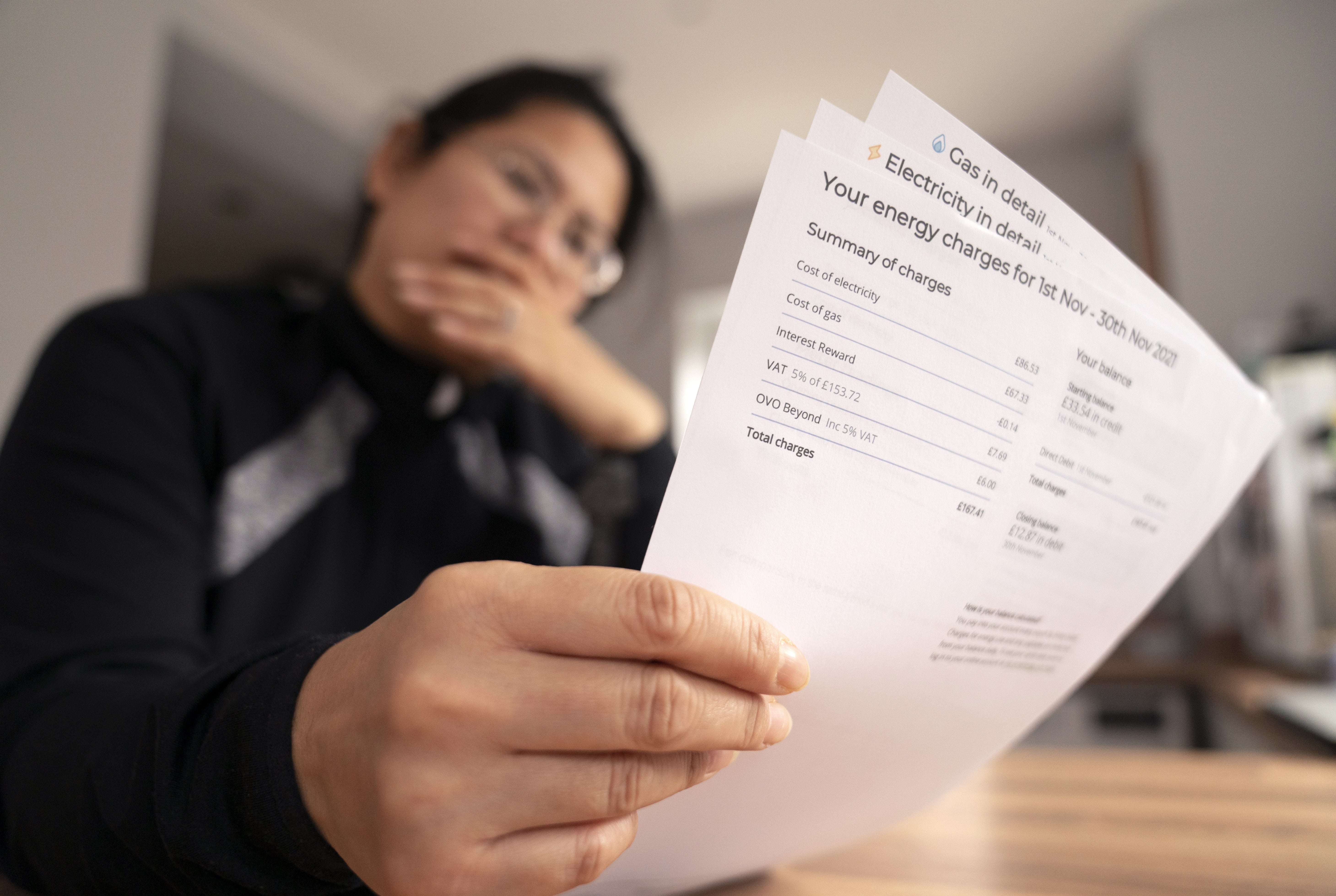Chancellor looking at how to ‘abate energy costs’, says PM
The energy price cap is due to rise in the spring, possibly increasing bills by 50%.

Your support helps us to tell the story
From reproductive rights to climate change to Big Tech, The Independent is on the ground when the story is developing. Whether it's investigating the financials of Elon Musk's pro-Trump PAC or producing our latest documentary, 'The A Word', which shines a light on the American women fighting for reproductive rights, we know how important it is to parse out the facts from the messaging.
At such a critical moment in US history, we need reporters on the ground. Your donation allows us to keep sending journalists to speak to both sides of the story.
The Independent is trusted by Americans across the entire political spectrum. And unlike many other quality news outlets, we choose not to lock Americans out of our reporting and analysis with paywalls. We believe quality journalism should be available to everyone, paid for by those who can afford it.
Your support makes all the difference.Chancellor Rishi Sunak is gearing up to make an announcement on how the Government plans to “abate energy costs”, according to the Prime Minister amid growing concerns about cost-of-living pressures.
Boris Johnson and Rishi Sunak have resisted calls from senior Conservatives and opposition parties to ditch plans to raise national insurance from April to fund extra health spending.
The Prime Minister and the Chancellor committed to imposing the 1.25 percentage point hike in a joint article in The Sunday Times, but Mr Johnson has separately signalled that support could be coming down the line to help consumers with soaring energy bills.
I know the Chancellor is looking at a package of things to abate energy costs
The energy price cap is due to rise in the spring, possibly increasing bills by 50%, according to predictions.
The ballooning gas costs also come with household budgets stretched by inflation, which jumped to a near 30-year high of 5.4% in December.
Mr Johnson, speaking to broadcasters in Essex, said his administration understands the “pressures that the cost-of-living crunch is putting on people”, particularly when it came to energy concerns.
“So, we’re going to be bringing forward … I know the Chancellor is looking at a package of things to abate energy costs,” he said.
Increasing the “national living wage” and cutting the taper rate on Universal Credit, along with a £12 billion support package, would help people through the current fiscal demands, he argued.
The Prime Minister added: “But you’ll be hearing more from the Chancellor in due course.
“The best way to help people with the cost-of-living is to have high wage, high skilled jobs and … that is one of the benefits we are seeing from Brexit.”
A post-Brexit policy idea that picked up support from Mr Johnson and Levelling-Up Secretary Michael Gove when they spearheaded the Vote Leave campaign in 2016 was removing VAT from energy bills.
A Treasury minister said he could not rule out enacting the suggestion to help with cost-of-living pressures, but argued it could have a “disproportionate benefit” for the wealthiest.
Chief secretary Simon Clarke told BBC Radio 4’s Today programme: “If you go with a blanket cut in VAT, then the risk is that the benefit of that accrues disproportionately to the wealthiest in society, because they will tend to have larger homes, larger energy bills, and will therefore reap the disproportionate benefit from such an intervention.
“We would rather target our support more closely to need.”
He added: “I’m not ruling it out, but I am saying that is not something that at this moment in time we are leaning towards, because we don’t think it is a well-targeted measure.”